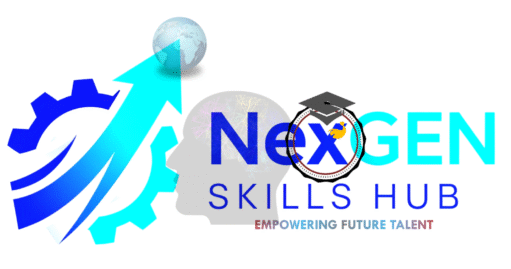Roadmap to Becoming an AI Generalist
Build Once. Solve Anything. Stay Irreplaceable.
Jobs will be impacted by AI by 2030.
Why Become an AI Generalist?
An AI Generalist is a full-stack builder for the AI era. They understand enough across domains—text, image, automation, and product—to prototype fast, build useful tools, solve real-world problems, and adapt to any future disruption. You don’t need to be a coder; you need to be a creative problem solver who knows how to work with AI.
Entrepreneurs
Build smarter products and automate your agency.
Professionals
Upskill fast, lead AI adoption, and boost your career.
Career Switchers
Leapfrog into the most future-proof skills of the decade.
The AI Generalist Roadmap
Level 1: Foundations of AI & LLMs
Build a strong mental model of how modern AI works, from core concepts like tokens and context windows to the basics of prompting.
Tools: ChatGPT, Claude, Perplexity, CustomGPTs
Level 2: Prompt Engineering, RAGs & Tuning
Move from casual use to structured, repeatable results. Learn to ground LLMs with your own data (RAG) and interact with models via APIs.
Tools: LangChain, OpenAI Playground, Vector DBs (Pinecone)
Level 3: Image, Audio & Video Generation
Extend your skillset beyond text. Learn to generate visual and audio content to automate entire content pipelines end-to-end.
Tools: Midjourney, RunwayML, Pika, ElevenLabs, HeyGen
Level 4: Automations & AI Agents
Start building useful tools and micro-products. Connect LLMs to real-world systems like APIs, CRMs, and databases using no-code tools.
Tools: Zapier, Make, n8n, CrewAI, Superagent
Level 5: Build AI-Powered Products
Design, deploy, and lead full-stack AI solutions. Understand the trade-offs between proprietary and open-source models to lead teams in AI adoption.
Tools: Ollama, HuggingFace, Supabase, Vercel, Cursor
Level 6: AI Evaluation & Future-Proofing
Learn to systematically test and evaluate AI outputs and integrate human feedback loops to build more robust and reliable systems. Master the art of staying current with emerging trends.
Tools: AI Test Kits, LLM-based evaluation frameworks, Conferences (NeurIPS, ICML), ArXiv
Your Toolkit as an AI Generalist
A generalist’s strength is breadth. This list details the key categories of tools and skills you’ll develop, from content generation to data infrastructure, forming a well-rounded expertise.
Text & Chat
- ChatGPT
- Claude
- Gemini
- Perplexity
- Mistral
Prompting & Orchestration
- LangChain
- CrewAI
- OpenAI Playground
- Google AI Studio
- VectorShift
Content Gen
- ChatGPT 4o
- Midjourney
- Pika
- RunwayML
- ElevenLabs
- Krea AI
- SDXL
Automation
- Zapier
- Make
- Lindy
- n8n
- Gumloop
Product Building
- Replit
- Webflow
- Cursor
- Vercel
- Lovable
- Airtable
Data & Infra
- Pinecone
- Chroma
- Ollama
- Hugging Face
Career Ladder in the AI Age
Your impact as an AI Generalist grows exponentially with experience. This chart illustrates how you evolve from enhancing personal productivity to driving organization-wide AI strategy.
The Compounding Advantage
Starting your journey early as an AI Generalist creates a compounding effect on your career. The bubble chart below illustrates how early investment in learning translates into disproportionately larger career impact over time. The size of the bubble represents the total impact.
The Generalist Workflow
The core loop of an AI Generalist is a continuous cycle of building and refining. This flow diagram visualizes how you move from a problem to a solution, and then back again to improve it.
1. IDENTIFY PROBLEM
2. PROTOTYPE SOLUTION
3. INTEGRATE WITH APIS
4. DEPLOY
5. REFINE & IMPROVE
Essential Skills & Responsible AI
🧠 Problem-Solving & Creativity
Imagine novel solutions using AI to solve real-world business problems.
⚡ Rapid Prototyping
Build quick, imperfect versions to test ideas and validate concepts quickly.
🗣️ Communication
Translate complex AI concepts to non-technical stakeholders.
⚖️ Bias & Fairness
Understand how training data can lead to biased outputs and learn to mitigate them.
🔒 Privacy
Handle personal and sensitive data responsibly, especially when using RAG.
🔍 Transparency
Explain how an AI solution works and clearly communicate its limitations.
Starter Projects You Can Build in 30 Days
These projects are designed to get you building quickly. They offer a great balance of low complexity and high impact, allowing you to gain practical experience and solve real problems right away.
🤖 AI-Powered Resume Builder
A tool that uses an LLM to automatically generate, critique, or optimize a resume based on a job description. Uses text generation and simple prompting.
💬 Internal FAQ Chatbot
A RAG-powered bot that answers company-specific questions by searching internal documentation. A foundational project for a no-code automation.
🎬 UGC Ad Script Generator
Generates short, engaging video scripts for user-generated content (UGC) ads, including sound effects and on-screen text cues. Focuses on content generation.
📧 Lead Qualifier Bot
An autonomous bot that integrates with a CRM to screen and categorize new leads based on email content, saving sales teams valuable time. Uses agents and APIs.
🎙️ Podcast Clip Generator
Automatically identifies key moments in a podcast episode and generates short audio/video clips with transcript overlays for social media. Involves multi-modal AI.
Advanced Projects
Once you have the fundamentals down, challenge yourself with these advanced projects that require more complex integrations and a deeper understanding of AI systems.
📈 Real-Time Business Dashboard
An AI-powered dashboard that uses agents to fetch real-time data from various APIs (e.g., Google Analytics, CRM) and provides natural language summaries and insights. Integrates multiple data sources and complex agents.
🎨 Autonomous Content Creator
A system that uses multi-modal AI to generate an entire content series. It could generate a blog post based on a prompt, create an accompanying image, and then write social media posts to promote it.
⚙️ Personal Dev Environment
A local LLM setup using a tool like Ollama that can run code generation models. This project is a deep dive into self-hosting and understanding open-source models for a private, powerful AI assistant.
Key Resources
Staying current is key. Here are some of the most valuable communities, newsletters, and tools to help you on your journey.
📧 Newsletters
- The Neuron – Daily AI news
- Ben’s Bites – Daily AI summary
- Latent Space – In-depth technical topics
🌐 Communities
- The AI Hacker Community – Discord for builders
- Hugging Face Discord – For open-source enthusiasts
📚 Learning Platforms
- Coursera – Foundations of LLMs
- DeepLearning.AI – Advanced topics and specializations


1 thought on “Roadmap to Becoming an AI Generalist-2025”
I am delighted that I detected this blog, precisely the right info that I was searching for! .